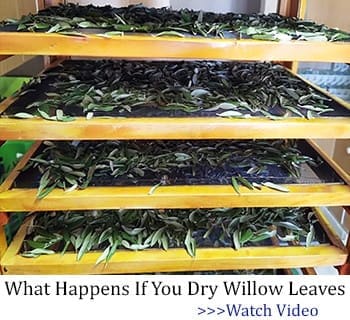I’m certain that I am not alone in wanting my favorite garden staples to be accessible year-round.
When I first started gardening, I would often pull our most consumed fruits and vegetables towards the end of the season, cut them up, and freeze them for later use. Unless you have access to a flash freezer (definitely not the case in our home), frozen vegetables have a shelf life of 8-10 months in your home freezer. This is a good deal of time to ensure that you have your garden favorites ready for you to use, no matter the season. But there’s a setback to this storage method: space. Freezer Space.
Many homesteaders have a deep freezer, but that is not the case in our home. We like to limit our electricity consumption as much as possible, and having a deep freezer on top of our refrigerator and freezer combo wasn’t an option for us. But then I discovered dehydrating fruits and vegetables for long time storage.
One afternoon while having lunch with neighbors on their farm, I was surprised to see zucchini used in their dish. It was the beginning of spring!
Our talented chef for the day mentioned halfway through the meal that the zucchini used in the dish were rehydrated. And at that moment, dehydrating fever took over me and has been raging for over four years now.
There are so many things you can dehydrate for long-term storage, and these are just a few of my favorites.
Beans
Most of us buy our beans dried and rehydrate them when we’re ready to use them, so why not do it yourself! On our property, we dehydrate our favorites to eat year-round; black beans, fava beans, and chickpeas! I prefer to place the beans to soak in cold water before going to bed so that they are ready to use the next morning.
Related: How to Dry Can Beans and Rice for 20+ Years Shelf Life

Berries
Although it took patience and ongoing battles against slugs, we have a pretty impressive Strawberry patch that gives us perfect, juicy berries from late spring through summer. We’re also proud of our patch of raspberry and blueberry bushes. We slice strawberries before dehydrating them and dehydrate the raspberries and blueberries whole. We then use them year-round in oatmeal, cakes, and granola/cereal. It keeps the kids happy!
Corn
Although we’re working on the amount of corn we grow in our garden, we’re able to store a sufficient amount to add to dishes throughout the winter. What I love most about dehydrated corn is that I can use it for our hearty winter soups and rice dishes without rehydrating it before cooking. It goes straight into the pot!
Mushrooms
In addition to growing shitake mushrooms on our property, we live in southern Burgundy, France, surrounded by lush wild forests. We take many walks through the forest every fall and spring, foraging for our favorite Funghi; Morels, Porcini (and other Boletus family members), and Chicken of the Woods. They all end up tossed in the dehydrator or in autumn, strung up high above the fireplace to dry out.

Tomatoes
Tomatoes are a year-round must! Of course, we end up making large batches of tomato coulis to jar and use throughout the year, but we love having an abundance of dried tomatoes to use throughout the year too. Some tomatoes are dried in the sun during the summer; other times, we dry our tomatoes in the dehydrator or on our woodstove. They are all then thrown into large jars and kept in the pantry. We slightly hydrate tomatoes to make jars of marinated dry tomatoes to use in salads and to give as gifts. The tomatoes are great to add to soups and rice dishes as well.
Apples
Like strawberries, we slice our apples during peak season and dehydrate them for later use in our morning oatmeal. I’m also a fan of dehydrated apple rings as snacks for the family, or rehydrating for use in an apple pie or tart.

Beets
Beets are one of the only vegetables that we dehydrate that we do not intend to rehydrate for later use. We love beet chips, and we dehydrate our beets and season them in various flavors. If stored in air-tight containers, our beet chips keep their crisp for several months.
Related: 5 Vegetables That Are Too Easy To Grow
Peas
Much like corn, we love dehydrating green peas for their ease of use throughout the year. Green peas rehydrate rather quickly, and being one of our children’s favorite vegetables, we find ourselves digging into our green pea stock more than every other vegetable on this list.

Cauliflower
We use cauliflower in various ways, but we dehydrate cauliflower to use mostly in soups and purées throughout the year. After a twenty to thirty-minute soak, our sliced and dried cauliflowers are ready for us to cook and season.
Zucchini
As mentioned above, zucchini is the vegetable that introduced me to dehydrating food for storage. Like many gardeners, zucchini is a household favorite, and our plants give much more than we can keep up with. After our usual “zucchini gifting” tradition at the end of summer, we slice and dehydrate loads of zucchini to use in sautées, soups, purées, and to make my personal favorite: zucchini bread.

The rules for rehydrating your dehydrated foods are pretty simple: if a dish you are cooking does not allow for you to simply add your dehydrated fruits or vegetables directly to what’s on the heat, it’s best to rehydrate your goods in cold water.
Apart from beans, the items on this list are ready for use after a twenty to forty-five-minute soak.
When it comes to storage, remember to keep your items in air-tight containers that are kept in a cool, dry space.
My personal dehydrating project has now moved on to drying herbs and flowers to make my own tea blends and making my own jerky! Our list of dehydrated goods grows longer every year!
You may also like:
An Insanely Effective Way to Build a 5 Year Food Stockpile (Video)
This Is Why You Should Grow Quinoa
A Warning To All New Homesteaders
H2O Dynamo – This Awesome Device Turns Air Into Fresh Water










OK, but how do you actually dehydrate each of those things? I’m super interested in using this method to make homegrown produce available year-round and, like you, reduce dependence on freezer space. But you never say how the dehydrating is accomplished! Do you just leave everything sitting out? What do you package everything in once it’s dehydrated? Do you store it on a shelf, in a cellar, in the fridge? What temperatures and conditions are best for prolonged storage of dehydrated produce? What mistakes did you make along the way and learn from? It would be helpful to know your actual process, as part of your post.
I personally dehydrate using a dehydrator that I bought online. They usually come with a book that tells you how long and at what temp. After it’s done I either pack in a jar or use a vacuum bag and my food saver. If they are in a jar they go on the shelf, if in a bag they go in a food tote. I hope this helps!
Would love a post about the above comment as well! 🙂
Can you just put the vegetables on a tray and place it in the car on a sunny day?
I have successfully dried fruits, veggies, and herbs on my car’s dashboard. I usually put the foods on a cooling rack which I’ve placed on a cookie sheet. One food I don’t feel safe drying in my car is beef jerky. I can’t regulate the temperature inside my car, so I opt to use my electric food dehydrator for jerky.
In addition to my car’s dashboard during the summer, I often use my electric food dehydrator for many foods–dried watermelon is a family favorite here! Just slice thinly, remove any seeds, then set in the dehydrator. Flip and turn as needed until you have a candy-flavored fruit leather. It doesn’t last long in my house!
Some foods, like banana slices, benefit from a dunk in lemon-juice infused water before drying. They retain their color better that way. However, I don’t mind the discolored fruit, so I don’t usually bother with it.
Soooo cool, S! Thank you so much for the detailed tips! I had thought Mark was just kidding, as this is not something I ever would’ve thought of! Definitely going for it this summer!
You are more than welcome, Renee. One caveat: use a hot pad/oven mitt when you remove the cookie sheet from the dashboard…it gets very hot. Don’t ask me how I know this…